About Willow Springs Center
The outpatient programs help you focus on and work toward maintaining mental wellness and address overwhelming emotions that can cause difficulties in life, including substance abuse, impulsivity, and family conflict. They provide teens with education about the complex problems associated with drug and alcohol addiction and what’s required to achieve long-term sobriety.
The earlier that substance abuse begins in an individual’s life, it’s more likely to become a serious issue. During residential addiction treatment, your program is centered on a specific educational track in which your recovery is addressed as an ongoing journey that begins with admission and continues throughout your life. The vision of this educational program is to meet your needs when you start your addiction recovery journey and then empower you to make healthy choices as you learn the strategies required to become and maintain sobriety.
The educational program inspires you to continue on this path after leaving the addiction center. The program includes dialectical behavior therapy (DBT) that’s designed to help adolescents who are struggling. The DBT program in this facility takes a skills-based approach to help turn your behaviors into the creation of strategies that work for you. They use a whole family approach so you and your family are actively involved in weekly sessions and participate in weekend training.
Team skills specific to those addicted to drugs and alcohol are taught using dialectical behavior therapy. You also participate in psychoeducational groups, process groups, and motivational interviewing groups to develop relapse prevention strategies. Within the program, you participate in individual counseling and 12 Step meetings. Your counselors are involved in a multidimensional treatment team staffing to evaluate your progress using your customized treatment plan.
They accept many major insurance providers and will verify your insurance coverage before beginning treatment.
Facility Overview
Latest Reviews
Rehab Score
Gallery
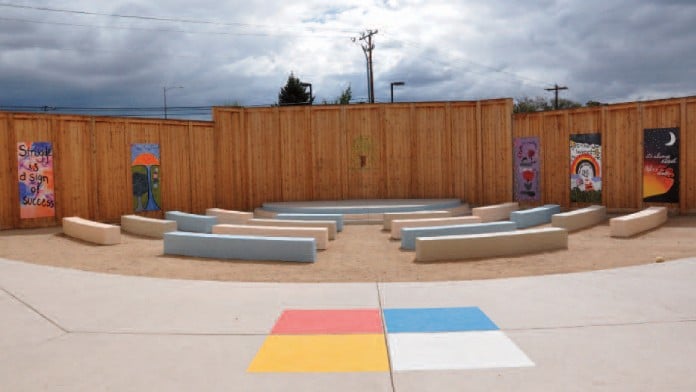
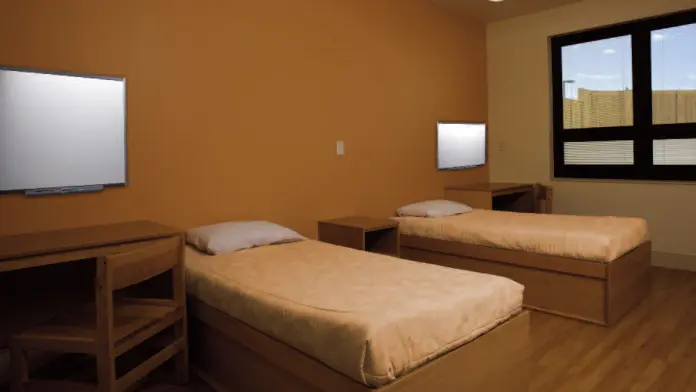
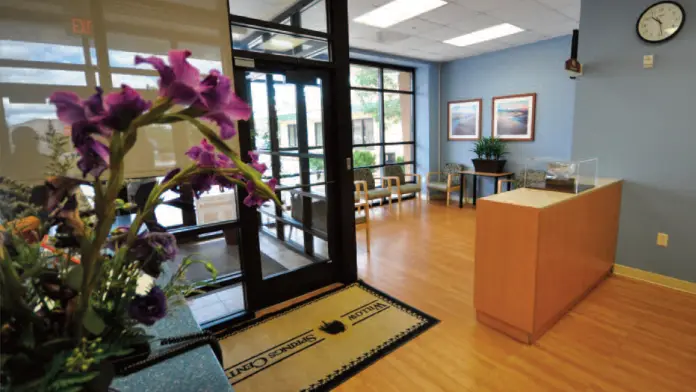
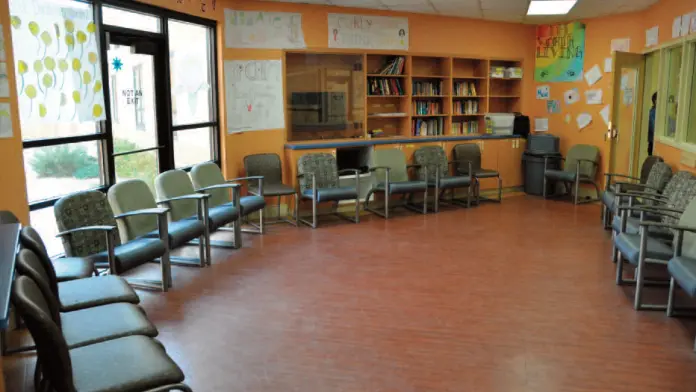
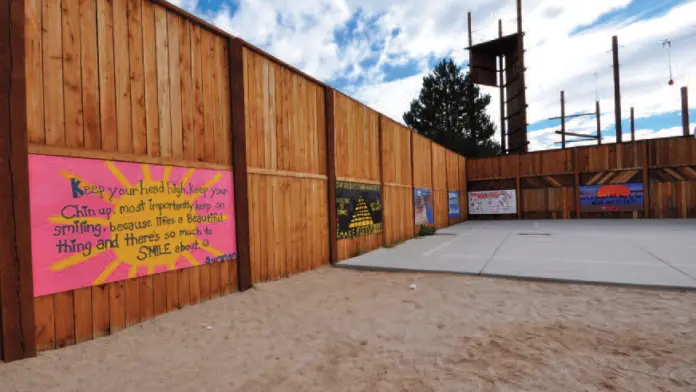
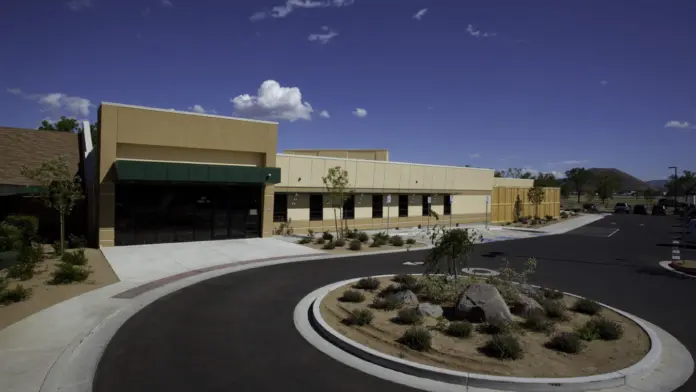
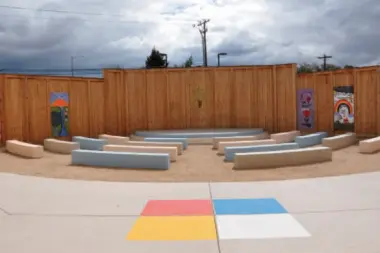

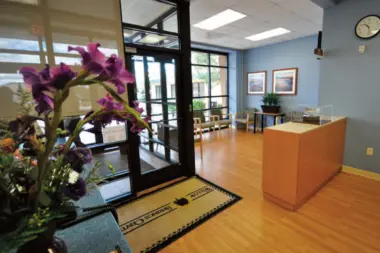
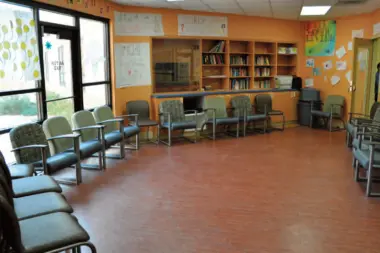
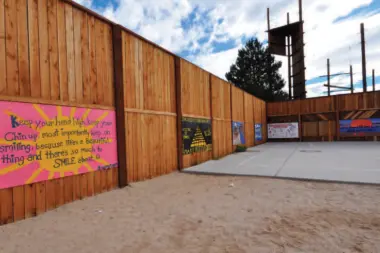

Accepted Insurance
Other Forms of Payment
Private insurance refers to any kind of healthcare coverage that isn't from the state or federal government. This includes individual and family plans offered by an employer or purchased from the Insurance Marketplace. Every plan will have different requirements and out of pocket costs so be sure to get the full details before you start treatment.
Self-pay involves paying for treatment out of your own pocket. You can use savings or credit, get a personal loan, or receive help from family and friends to fund your treatment. If you don't have insurance or your insurance plan doesn't cover a specific program, self-pay can help ensure you still get the care you need.
Medicaid is a state based program that helps lower-income individuals and families pay for healthcare. Medicaid covers addiction treatment so those enrolled can use their coverage to pay for rehab. When a program accepts Medicaid the client often pays very little or nothing out of their own pocket.
Military members, veterans, and eligible dependents have access to specific insurance programs that help them get the care they need. TRICARE and VA insurance can help you access low cost or no cost addiction and mental health treatment. Programs that accept military insurance often have targeted treatment focused on the unique challenges military members, veterans, and their families face.
Addiction Treatments
Levels of Care
Outpatient rehabs provide addiction treatment aligned with clients' unique schedule and evolving needs. Many programs offer evening, night, morning, and weekend services to accommodate clients who are working professionals or full-time caregivers. They also provide a full continuum of care, including psychotherapy, recovery-focused life skills training, and, for clients in alcohol and/or opioid recovery, medication assisted treatment (MAT).
Inpatient rehab provides a highly structured and supportive environment for clients at an increased risk of relapse, including clients exiting detox, those in early recovery, and those experiencing crisis. Many inpatient treatment centers offer round-the-clock clinical care. Their principal treatment modality is usually psychotherapy, including individual, group, and family counseling. Clients may also participate in extensive life skills training to support their long-term sobriety. Some rehabs offer holistic therapies, including massage, meditation, and nutrition therapy.
Intensive Outpatient programs are for those who want or need a very structured treatment program but who also wish to live at home and continue with certain responsibilities (such as work or school). IOP substance abuse treatment programs vary in duration and intensity, and certain outpatient rehab centers will offer individualized treatment programs. The Intensive Outpatient Program gives patients the chance to participate in a structured treatment plan part-time while they transition back to home and work or other responsibilities.
A partial hospitalization program (PHP) is a short-term form of intensive rehab, usually for those with acute symptoms that are hard to manage but don’t require 24-hour care. PHPs have structured programming (i.e. individual and/or group therapy), and usually meet 3-5 days a week for around 6 hours (i.e. 9am-3m). Some PHPs are residential (patients sleep on site) and some are not, so patients sleep at home. PHPs can last from 1-6 months, and some offer transportation and meals.
Treatments
Specialized substance abuse treatment in Nevada can support individuals who need help for substance abuse. Care levels include outpatient, inpatient, and partial hospitalization programs. By incorporating evidence-based therapies such as cognitive-behavioral therapy (CBT), dialectical behavior therapy (DBT), counseling, clinicians can help you to get to the root cause of your addiction and equip you with the tools to maintain your recovery.
Addiction and mental health disorders are often present at the same time, a condition that is known as dual diagnosis. The reasoning behind that is twofold. Firstly, using drugs and alcohol is a way to self-medicate many of the most stressful aspects of mental health. On the other hand, having an addiction vastly increases your chances of developing a mental health disorder.
Programs
Recovery is most successful when clients feel accepted and validated by their peers and treatment providers. Facilities that offer LGBTQ-inclusive programming are committed to creating a safe space where everyone can grow and recover without fear of judgment or discrimination. They will have dedicated policies in place to create a safe and supportive environment that fosters free expression.
Serving in the military is both mentally and physically challenging, and can result in trauma that persists even after combat ends. Military programs are tailored to the specific and often complex needs of active duty personnel, veterans, and military families. Clients often access these programs through the U.S. Department of Veterans Affairs (VA).
The providers who specialize in the children's rehab space understand the specialized needs that this population faces. School-based and social services such as tutoring and family counseling are often central to treatment. Child programs may also address the needs of youth experiencing substance abuse in the home, including a parent's or sibling's addiction.
Teen programs are designed to address the unique pressures teens face, pressures that can drive them to experiment with dangerous, addictive substances. They need programs that meet them exactly where they are and give them tools for long-term recovery. Therapy can help teenagers understand and work through underlying issues so they can reclaim the life ahead of them.
Clinical Services
Substance abuse counselors may apply cognitive behavioral therapy in Nevada during individual, family, or group sessions. Using a goal oriented approach, the therapist will help participants change negative thinking and behavioral patterns to address substance use and related challenges.
If you're experiencing substance use disorder, dialectical behavior therapy in Nevada can help you reduce cravings, learn healthier ways to manage stress, and avoid situations that can lead to substance abuse. Treatment includes one on one sessions with your therapist as well as group sessions to practice the skills you're learning.
Group therapy opportunities in Nevada allow you to see how successful recovery behaviors are modeled by your peers. You learn conflict resolution skills and are empowered to recognize your strengths and overcome your addiction.
Individual therapy provides you with a confidential setting to explore the complex factors that contribute to drug and alcohol addiction. Your therapist can provide tailored support and help you develop healthy coping strategies, improve self control, and build a foundation for sustainable sobriety.
Trauma therapy uses trauma focused care to help you understand and manage your emotional and physical responses. Using therapeutic interventions, you learn to reframe the experience. This helps to reduce your anxiety and build your resilience to face future challenges and gain control over your life.
Using recreational therapy in a holistic addiction treatment program allows you to find joy and purpose within healthy activities. You might engage in group games, arts and crafts, and fitness programs that promote relaxation and physical health. These are essential for long term recovery.
During family therapy sessions, your therapist facilitates discussions that help members of the family unit understand addiction and how it affects the entire family, providing you with coping strategies that help to strengthen the family unit.
Research shows that motivational interviewing is an effective approach for individuals who are unprepared for change. They may be resistant to change or simply insecure in their abilities to make changes. This therapeutic method allows clients to explore their options, reach their own conclusions, and feel empowered to make changes.
Amenities
-
Residential Setting
-
Private Rooms
-
Gym
Staff & Accreditations
Staff
Char Buehrle
CEO
Ethan Steever, PhD
Chief Clinical Officer
Charette Godoy, MBA
CFO
Holly London, BSN, RN
Director of Nursing
Sarah McGill
Director of Clinical ServicesLCSW, LCADC
Accreditations

The Joint Commission, formerly known as JCAHO, is a nonprofit organization that accredits rehab organizations and programs. Founded in 1951, the Joint Commision's mission is to improve the quality of patient care and demonstrating the quality of patient care.
Joint Commission Accreditation: Yes

State Licenses are permits issued by government agencies that allow rehab organizations to conduct business legally within a certain geographical area. Typically, the kind of program a rehab facility offers, along with its physical location, determines which licenses are required to operate legally.
State License: Nevada
Contact Information
690 Edison Way
Reno, NV 89502





